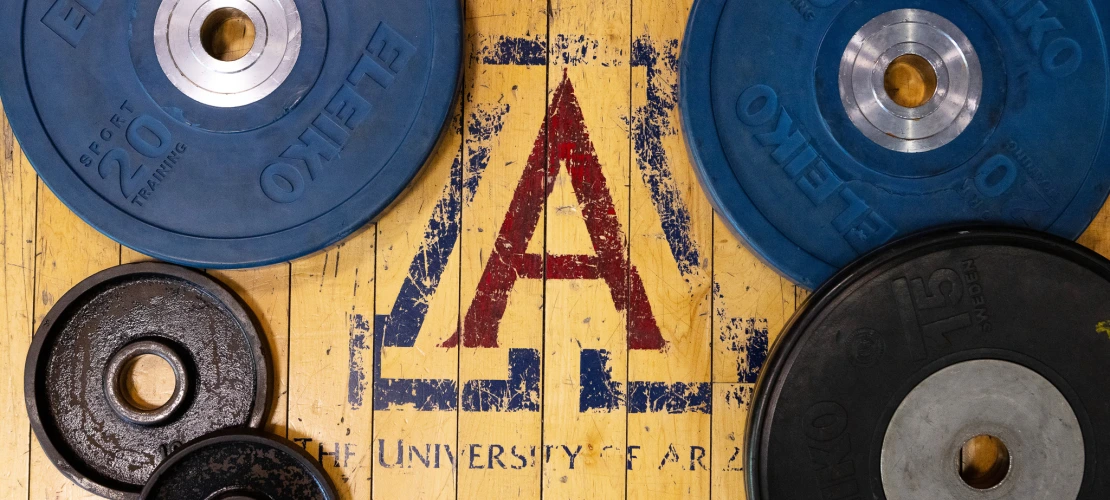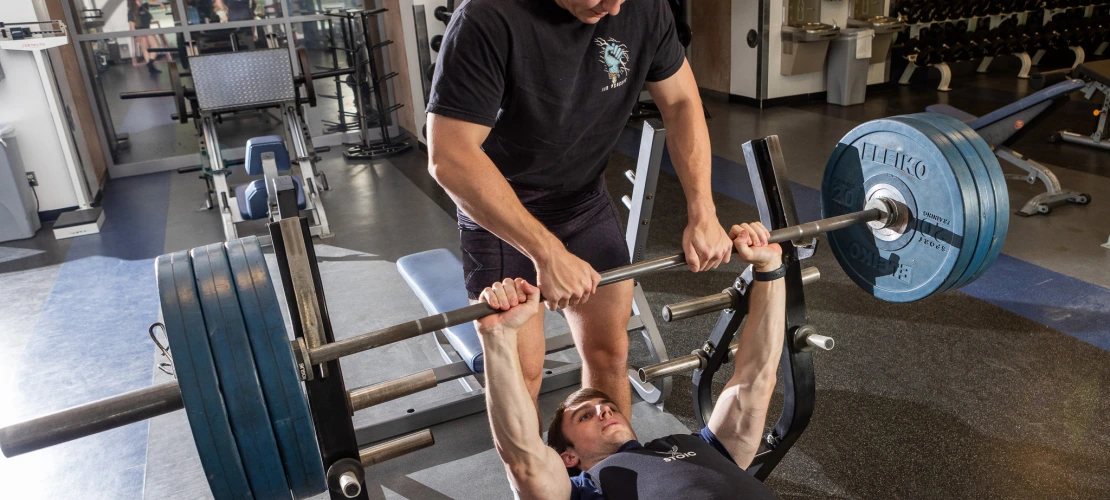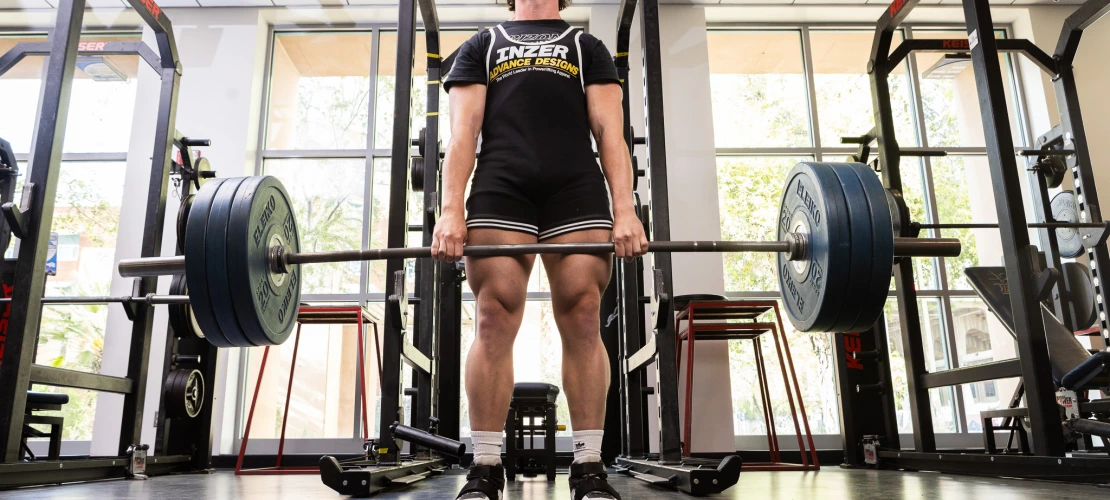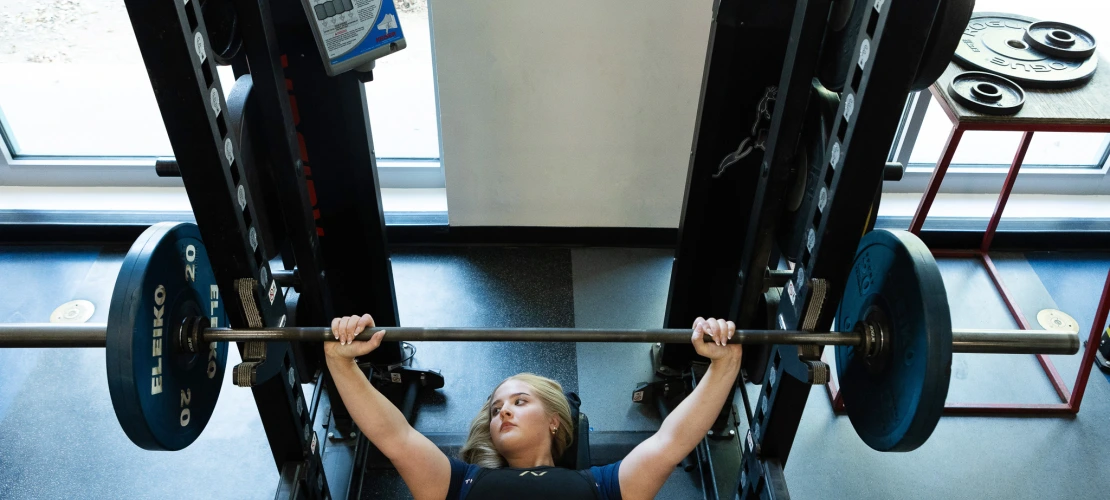Lifting to New Heights
Powerlifters set the bar high when facing physical and academic challenges.
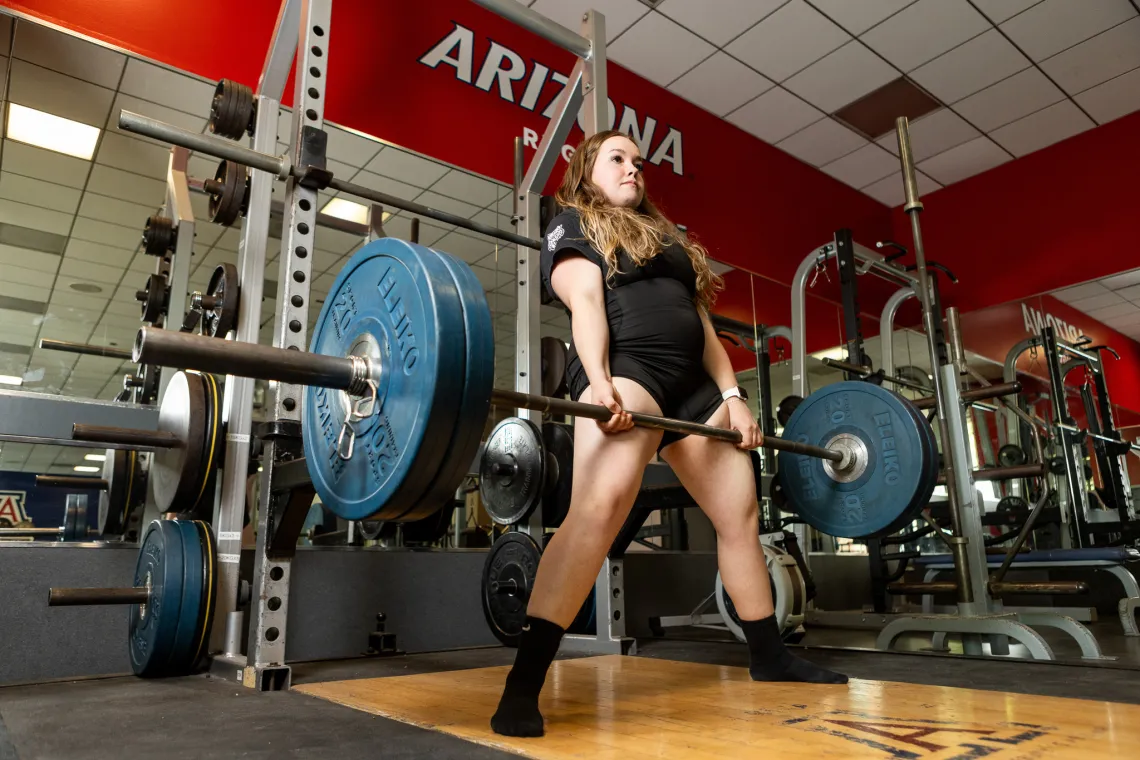
Madison Shulz
Photos: Chris Richards
For Jefferson Caspary, president of the University of Arizona Powerlifting Club, the humbling first-day experience is one of the best parts of the club. “Realizing you’re not the best at something is awesome,” he says, “because you allow yourself to do things that can help you get better.”
Cameron Klaudt, the club’s vice president, agrees, remembering his first training session. “I came into the club thinking ‘I know powerlifting; I know this’ — and then you learn something new and just keep building your knowledge.
Seasoned powerlifters can lift many times their body weight — up to eight times their body weight for men and seven times for women. Members of the club maximize strength in three main lifts: back squat, bench press and deadlift. Occasionally, well-known powerlifters in the community meet with the club, sharing their own lifting experiences. Club members say they find those meetings invaluable and a positive sign of the club’s growth.
Caspary and Klaudt recount the club’s rough beginnings. After failed starts in 2016 and 2018, a small group of dedicated lifters, led by founding member and current graduate student Brenn Balone, restarted the club in early 2019, to great success. Then the coronavirus pandemic hit, and their efforts began to fall apart. Months later, Caspary started his first semester at the university — right in the middle of the pandemic — and a member invited him to join the club.
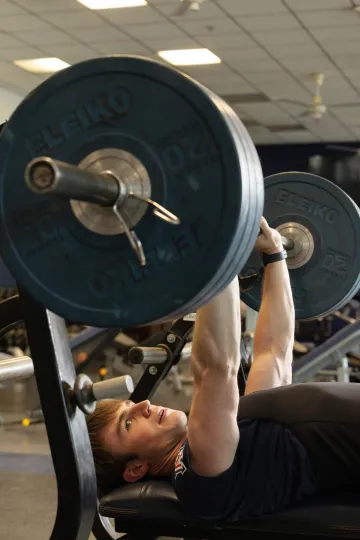
Jefferson Caspary, powerlifting club president
The small club of dedicated members met over Zoom, and Caspary remembers waiting weeks before he could attend his first in-person training. “We never really had that many members, but it allowed us to focus on the members we did have,” he says. “I was learning a lot.”
Klaudt joined the club during a period of his life he describes as “stagnant.” He was the only first-year student in the club at the time, and being a part of it helped him find a home at the university. Today, as a junior, he laughs at how his constant questions had started to wear on the club’s senior members. Now, he’s able to mentor younger lifters. “I see a lot of them in my shoes,” he says. “They don’t have an activity, something to do besides classes. I’m trying to help them find that community.”
Madison Schulz is a physiology and medical sciences major who joined the club shortly after Caspary. She says she joined for the environment and the chance to train seriously. The pandemic shutdown prevented her from lifting and working out, a pastime she had enjoyed since high school. Then she discovered and was inspired by Daniella Melo, a young, medal-winning powerlifter who has competed in the World Games and set multiple records for women in her weight category.
“She single-handedly got me into it,” Schulz says.
Being a part of the Powerlifting Club has supported her growth as well. “No one can control the results besides you,” Schulz says. “There are times when I catch myself slacking and know I need to step it up and other times when I feel proud for completing tough sessions.”
Today, the club has made its way to post-COVID success. Membership doubles each year, and there are now nearly 70 members. Participation is healthy, with about half of the members attending weekly meetings at a local gym, Tucson Strength.
The club competes in meets and is planning to host an official powerlifting meet at UArizona. Caspary, Klaudt and Schulz, who have all competed, help get interested members competition ready. They host mock powerlifting meets that also include lifters from Grand Canyon University, Arizona State University and Ottawa University. The mock meets help lifters experience the rules and regulations of an official meet.
“It’s easy to forget regulations when you’re putting in maximum effort. Your mind just isn’t focused on that,” Klaudt says. “It seems simple, but it’s a good experience for people to learn.”
“It sucks when you get a ‘no lift,’” Caspary adds, referring to an attempt disqualified by a referee for a rule violation. “But it’s really one of those things where it happens once, and you figure it out.”
In addition to practice, the club's members also perform volunteer work. Recently, they partnered with Tucson’s Sanctuary Project to host a community service event, Lift Heavy Love Dogs, at Tucson Strength, raising $4,000 for the no-kill animal rescue movement.
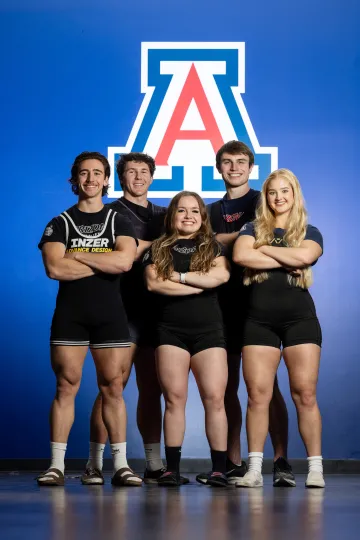
Sam King, Cameron Klaudt, Schulz, Caspary and Danielle Quenzler
To build club membership, Caspary and Klaudt recruit at the Campus Recreation Center, often finding lifters who are unaware that the club is open to all. “I’ve had a lot of people tell me ‘I didn’t think I was good enough,’” Klaudt says. Just the opposite is true — no trial or qualifications are necessary. The club welcomes new faces and offers a supportive community, something Klaudt calls a favorite component of powerlifting.
“There are so many people with similar mindsets that love to support you,” he says. “They aren’t just there to lift; they’re there to see you succeed.”
Caspary says members of the club are self-motivated and that most members challenge themselves outside of powerlifting as well. There are members pursuing all levels of degrees and in a variety of programs, and experienced powerlifters will often share bits of academic wisdom as well as their lifting knowledge. Klaudt, for example, who plans to be a physical therapist after earning a biomedical science degree, receives guidance from another club member who is already a physical therapist. They are all there to support each other.
“If they’re doing tough things in the weight room,” Caspary says, “they’re probably doing tough things in the classroom.” Facing challenging work alongside peers who can relate to the difficulties both in and out of the weight room is motivating, he adds. “It makes you want to get better.”

